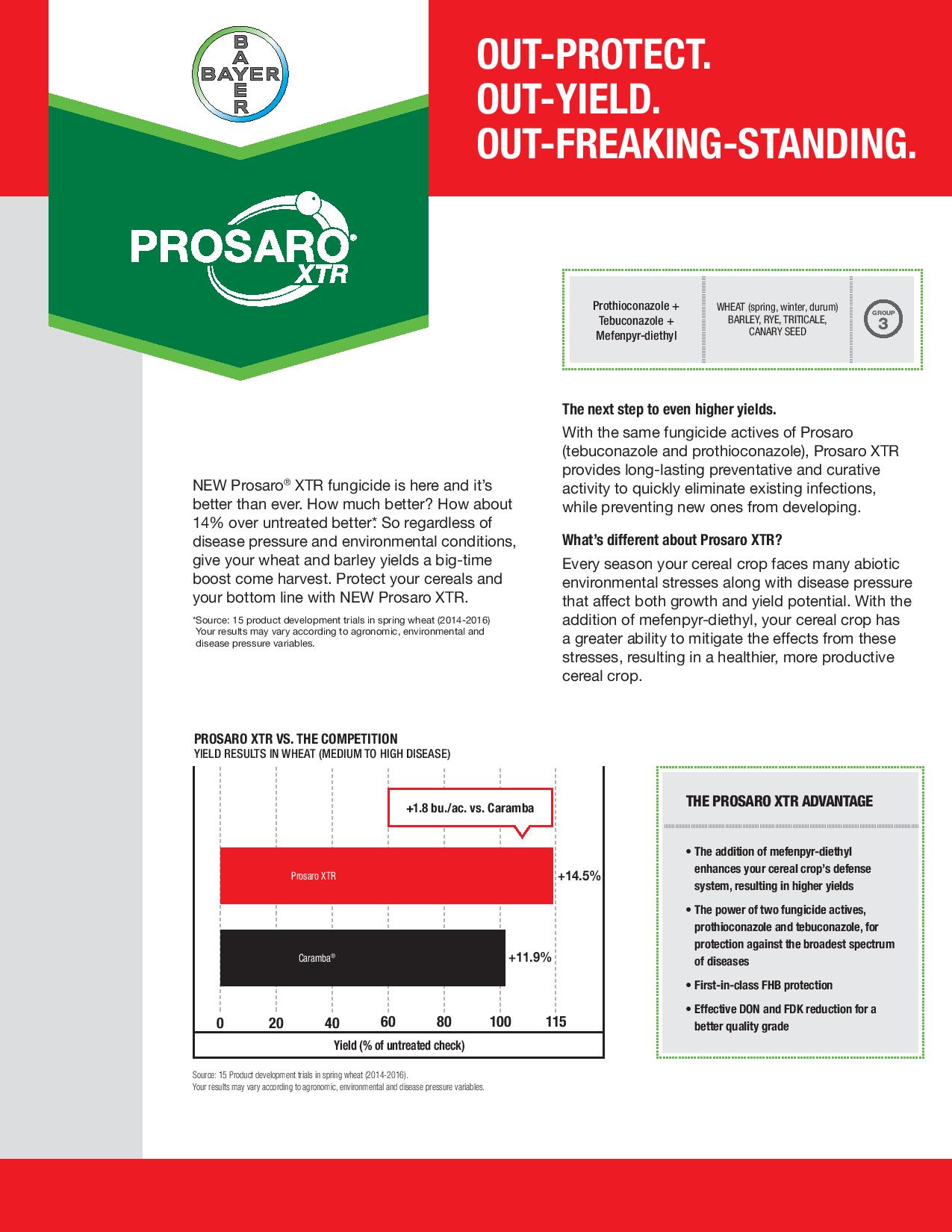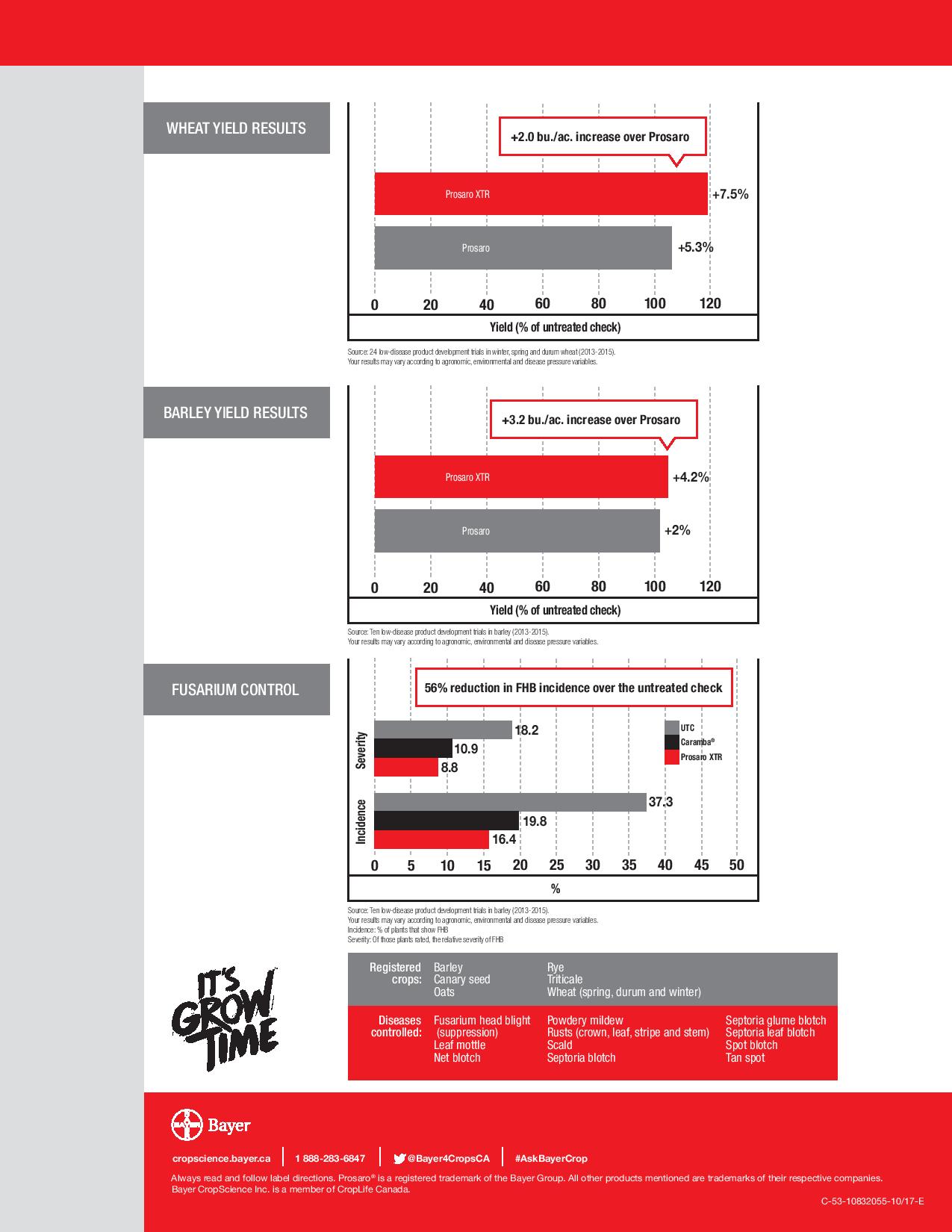Bayer’s Prosaro XTR will be available to producers in 2018
By Diego Flammini
News Reporter
Farms.com
Canadian cereal producers will have a new disease management tool in 2018 thanks to the launch of Bayer’s Prosaro XTR fungicide.
The product can be used on many cereal crops, including barley, oats, rye and wheat. The fungicide can help control fusarium head blight, septoria blotch and leaf mottle.
The product is similar to the Prosaro fungicide but with one added bonus, says James Humphris, crop manager, cereals, with Bayer.
“Prosaro XTR includes the addition of mefenpyr-diethyl to the fungicide’s formulation,” he told Farms.com today. “Mefenpyr helps the plant fights off stressors throughout the year, much like we take things to fight off the common cold.”


Nothing has changed from a fungicide application timing perspective but the addition of mefenpyr can help farmers achieve greater yields, he said.
And Bayer’s trials demonstrate this yield boost.
Wheat trials conducted against unchecked wheat from 2013 to 2015 show Prosaro XTR helped farmers achieve about a 6.5 bushel per acre (bu/ac) increase in yield.
Prosaro XTR also helped reduce fusarium in barley by 56 per cent and increased yield by 3.2 bu/ac during the same trial period.
Farmers looking for increased cereal yields should consider Prosaro XTR as part of their disease management plan, Humphris says.
“We knew inherently that mefenpyr had some characteristics surrounding plant health,” he said. “The disease protection between the two products is the same. But the expectation growers should have with Prosaro XTR is more yield.
“We know there’s no extra land for our growers so they do have to try to make more (crops) from the same land.”